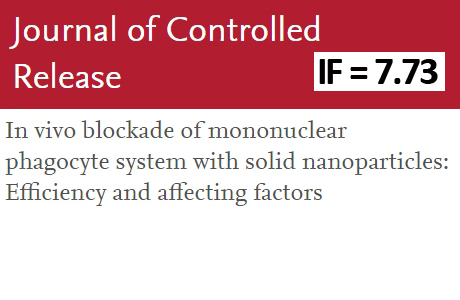
In vivo blockade of mononuclear phagocyte system with solid nanoparticles: Efficiency and affecting factors
The mononuclear phagocyte system (MPS) blockade improves the pharmacokinetics of diagnostic and therapeutic nanoparticles and reduces side toxicity. Scientists from MIPT, MEPhI, GPI and the Laboratory of molecular immunology of IBCh RAS studied the key factors that determine the effectiveness of the blockade: blocker particle dose, size, zeta potential and type of coating, as well as mouse strain, inflammation and the presence of a tumor. It was found that the type of blocker coating had the strongest effect on MPS blockade efficiency, which allowed to prolong circulation of functional nanoparticles in the bloodstream 18 times. The results obtained demonstrate the practical significance of the MPS blockade and possible mechanisms for its regulation to improve the delivery of diagnostic and therapeutic nanoagents. The work was published in the Journal of Controlled Release.
21 января 2021 года

